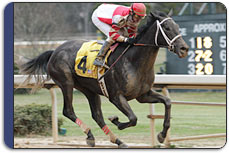 The Kentucky Horse Racing Authority (KHRA) released a statement on Monday, May 5 regarding the filly Eight Belles, who was injured and subsequently euthanized on the track, following her second-place finish in the Kentucky Derby on May 3.
The Kentucky Horse Racing Authority (KHRA) released a statement on Monday, May 5 regarding the filly Eight Belles, who was injured and subsequently euthanized on the track, following her second-place finish in the Kentucky Derby on May 3.
Also on Monday, People for the Ethical Treatment of Animals (PETA) called for the racing industry to suspend Eight Belle’s jockey and trainer, to bar the owner from racing at the track. PETA also called for the racing industry to halt races for young horses and to stop the racing of horses on hard tracks and switch to softer, synthetic surfaces. In addition, they called for a permanent ban on the use of whips.
Following is the KHRA statement, which addresses PETA’s demands:
We are saddened by the loss of Eight Belles during the 134th running of the Kentucky Derby last Saturday. Our hearts go out to Rick Porter [owner], Larry Jones [trainer] and every member of the Eight Belles connection. While injuries such as those sustained by Eight Belles are infrequent to thoroughbred horse racing, it does not lessen the tragedy when they occur.
The Kentucky Horse Racing Authority (KHRA) has been constantly reviewing safety issues and will continue to monitor research and development in that area.
The KHRA is concerned about the health and welfare of thoroughbred race horses. The KHRA remains actively involved in all safety aspects of thoroughbred racing. All horses are examined by a KHRA veterinarian prior to racing to ensure they are sound and free of injury on race day. The KHRA has enacted race day medication rules designed to protect not only the horses, but the jockeys as well.
The KHRA will remain vigilant in seeking ways to protect all of the athletes involved in horse racing, working with racing jurisdictions from other states, as well as national and international organizations. For example, an injury reporting system is now in place nationally and Kentucky has been providing data since the inception of the system. It is hoped that this data can be used to make recommendations to enhance the safety of racing.
Likewise, the KHRA will continue investigating injuries occurring during or after a race. In light of the Eight Belles tragedy, the KHRA intends to enhance its protocols in this area. The KHRA will use this information to study and recommend improvements related to the safety of racing.
People for the Ethical Treatment of Animals sent the KHRA a letter requesting that certain actions be taken. One statement indicated thoroughbreds should not be trained or raced before their third birthday. The KHRA has no scientific evidence to support the need to make this change.
According to Dr. Larry Bramlage, the on-call veterinarian for the American Association of Equine Practitioners, “as soon as thoroughbreds are physically mature, they should start effective training. It is most desirable not to let the bone formation apparatus atrophy after growth and then require it to be re-created. The most effective training takes advantage of the blood supply and cell population that contributed to growth, and convert it to forming bone in response to training. Scientific evidence shows such horses have longer careers and are more successful.”
There has also been a suggestion that racing should be limited to synthetic surfaces or turf tracks. Research is ongoing on the safety of dirt and synthetic surfaces. It would be premature to rush to judgment on the exclusive use of any particular surface at this time. The KHRA will continue to monitor the research on the safety of track surfaces.
Another suggestion has been to reduce the number of races per season. Again, the KHRA has no scientific evidence to support this view.
With regards to the whipping of horses, a whip is a tool used by jockeys to direct and control the horse during the course of a race. This tool provides safety for all participants in the race, including other horses and riders, by reducing contact with other horses as well as the rail.
Abuse of the use of a whip is a violation of Kentucky racing regulations and is unacceptable to the KHRA and state racing stewards. As a matter of fact, Kentucky racing stewards have taken disciplinary action against jockeys who have abused the use of a whip during a race. Kentucky stewards are required to review the videotape of a race before it can be declared official. Kentucky stewards reviewed videotapes of the Derby and saw no evidence of a violation of any racing regulation by Mr. Gabriel Saez during the course of the race.
